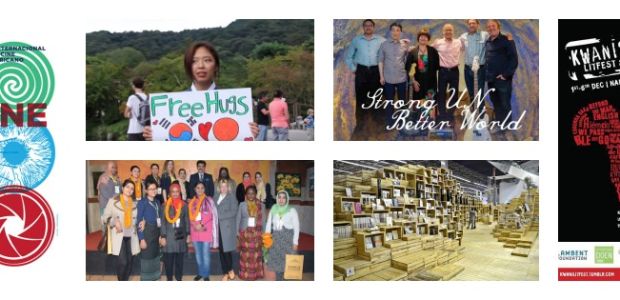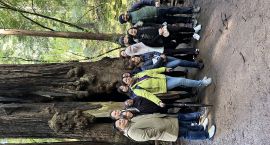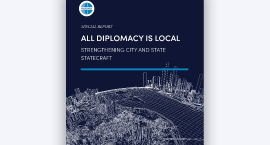As we say goodbye to another year, this edition of MCCD’s Soft Power features events from last month that are likely to impact cultural diplomacy in 2016. In the spirit of the New Year, we’ve coupled these highlights with soft power resolutions that anyone can take part in. Soft power diplomacy comes in many forms – maybe this month’s selections will inspire grassroots efforts in 2016.
Resolution: Spark a change.

UNRocks – Anywhere with speakers
2015 marked the 70th anniversary of the foundation of the United Nations Educational, Scientific and Cultural Organization, better known as UNESCO. To mark the occasion, a band of UN delegates released their debut track titled after the year’s celebratory mantra: Strong UN, Better Tomorrow. The group, known as UNRocks, is composed of the Ambassadors of Denmark, Serbia, South Korea, Thailand, Tonga, and the Representative of UN Secretary-General and Head of United Nations Office in Belgrade. The Friendship Ambassadors Foundation helped produced the CD, which was composed and arranged by Emmy Award-winner Gary Fry. The musical single demonstrates everyday soft power, as opposed to the traditional dialogue and policy-based diplomacy of the organization.
Resolution: Befriend a former adversary.
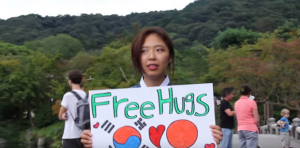
7th China-Japan-South Korea Ministerial Conference on Culture – Qingdao, China
China’s Minister of Culture Luo Shugang; South Korea’s Minister of Culture, Sports and Tourism Kim Jong-deok; and Japan’s State Minister of Education, Culture, Sports, Science and Technology Hiroyuki Yoshiie met in Qingdao, China, on December 20 for the 7th annual tri-lateral Ministerial Conference on Culture. Following the conference, cooperation between the three powerful Asian nations reached new levels, specifically between Japan and South Korea, as apologies and reparations were settled regarding World War II exploits. The effects of this diplomacy, however, begin on the individual level with everyday people-to-people interactions; kudos to Suyeon Youn for demonstrating just that.
Resolution: Learn a new language by watching foreign films.
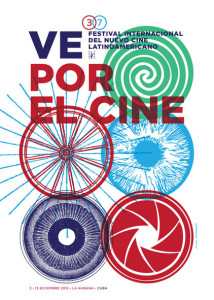
International Festival of New Latin American Cinema – Havana, Cuba
Echoing the détente in the Pacific, 2015 also saw the restored diplomatic relations between the United States and Cuba. Evidence of the effects, the Ernest Hemingway biopic, Papa, premiered in Havana at the 37th annual International Festival of New Latin American Cinema as one of the first U.S. films shot in-country since the 1960 embargo. The film industry has been growing drastically since normalization. In fact, so many American film stars and industry leaders expressed interest in attending that organizers had to limit the number of passes given to U.S. citizens. The festival was held between December 3 and 13, and featured films and filmmakers that “enrich and reaffirm the Latin American and Caribbean cultural identity.”
Resolution: Participate in an international exchange.
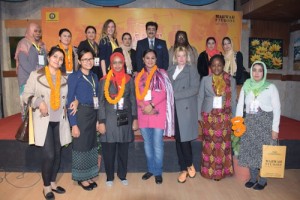
Global Cultural Summit – Noida, India
On December 20, delegates from more than 20 nations met outside of New Delhi for a Global Cultural Summit. Hosted at Noida Film City, an industrial complex prominent among India’s entertainment industry, the conference focused on developing international relations through art and culture. Sandeep Marwah, media mogul and president of the Asian Academy of Film and Television, led the discussion with officials from Bangladesh, Cambodia, Colombia, Ethiopia, Kyrgyzstan, Tajikistan, Timor-Leste, Sri Lanka, Botswana, Ghana, Kenya, Tanzania, Uganda, Zimbabwe, Afghanistan, Bosnia and Herzegovina, Sudan, Serbia, and Nigeria. The summit resulted in a comprehensive plan to support cultural development through projects focused on international exchange, collaboration, and dissemination.
Resolution: Read more diverse authors.

Guadalajara International Book Fair – Guadalajara, Mexico
Latin America’s largest literary event, the Guadalajara International Book Fair (FIL), took place November 28 through December 6. Nearly 800,000 people attended the fair, where 2,000 publishing houses represented 44 countries. This year the United Kingdom was the guest of honor, but attention remained on the Spanish-speaking world with 400,000 titles available in the Romance language. Festival Director Marisol Schulz Manaut confirms the motivation behind the fair: “This is not really a country where people read…and the same happens all over Latin America. We have to promote reading among younger generations.” In support of this, 171 related activities attracted over 170,000 youth participants.
Resolution: Have meaningful conversations with strangers.
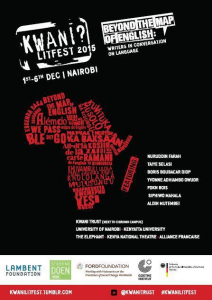
Kwani? Litfest: Beyond the Map of English – Nairobi, Kenya
For the 5th installment of the Kwani? Litfest, held December 1 through 6 in Nairobi, Kenya, individuals from across Africa gathered with members of the global African diaspora for readings, performances, and discussions. The event was organized by the titular literary journal with the theme of ‘writers in conversation on language.’ Critical thought prevailed in an exploration of language, identity, and place. The festival included public lectures by Somali novelist Nuruddin Farah, Ghanaian-Nigerian novelist Taiye Selasi, Senegalese writer Boris Boubacar Diop, and Tanzanian scholar and novelist Aldin Mutembei.
What’s your #softpower resolution? Let us know in the comments section below or tweet it to @MeridianIntl.














